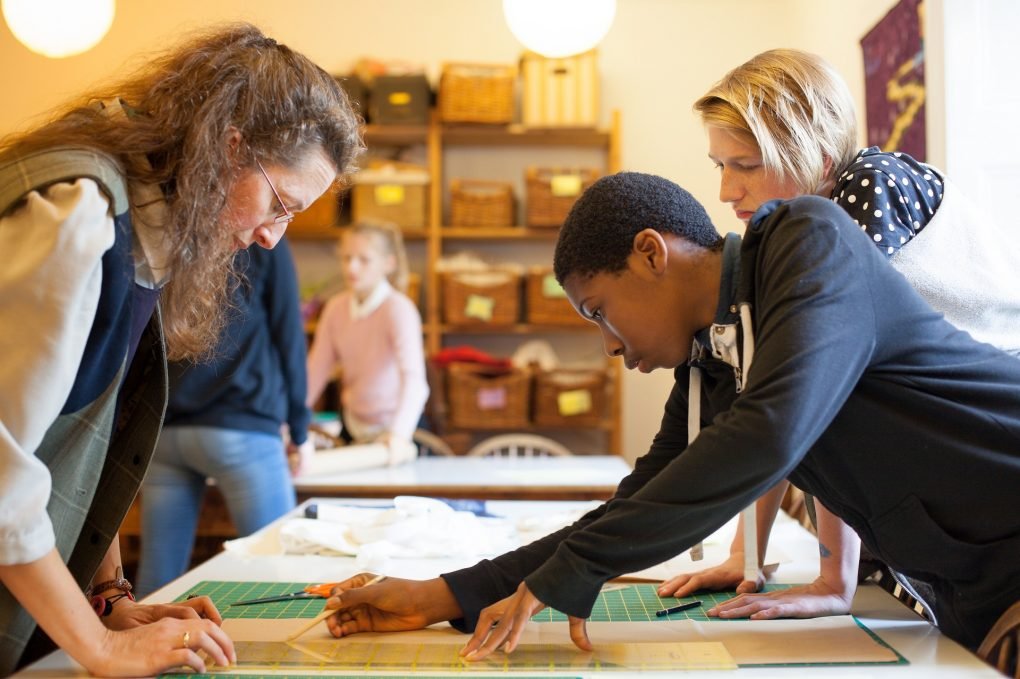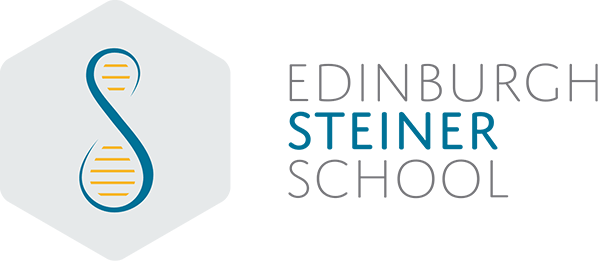Pastoral Care
In our rapidly changing world, having the same Class Teacher through most, if not all, of their Lower School years; and a Class Guardian for their four Upper School years, provides a haven of stability and continuity which is extremely rare in other schools. The children develop a unique level of trust and confidence in their teacher while their teacher gains a deep understanding of the strengths and needs of each child.
Main Lesson Programme
The cornerstone of Waldorf education worldwide is the Main Lesson. Nowhere does this differentiate us most from the mainstream approach than in the Upper School. At a time where most young people become specialised as a result of their exam choices, pupils at ESS continue to study a broad spectrum of subjects in a non-examination environment.
To learn more about this cornerstone programme in Waldorf education, read: What Is A Main Lesson? And Why Is It Such A Big Part Of The Timetable?
An overview of the Upper School Programme of Main Lessons: ESSTalks.org/u
Creative Thinking Skills
Lower School
From the start of formal education in Class 1 until the end of Class 8, the Class Teacher has overall responsibility and care for the class, thereby creating an ideal environment for sustained and supportive learning. In our rapidly changing world, having the same Class Teacher through most, if not all, of their Lower School years provides a haven of stability and continuity which is extremely rare in other schools. The children develop a unique level of trust and confidence in their teacher while their teacher gains a deep understanding of the strengths and needs of each child.
It also means a close and supportive relationship is developed between the Class Teacher and the parents/guardians.

Find out more about:
Settling In
When pupils join the school they are assigned a buddy from their class, while additional classes are offered to enable them to reach the same level as their peer group. This is particularly important for pupils who join midway through the school and who have not had the opportunity to study Modern Languages previously.
Our Staff
All teachers at the school have been formally trained as Steiner teachers but the school recruits not only on the basis of appropriate qualifications but rather seeks out those teachers who can demonstrate a genuine passion for the education of young people. It is our staff’s enthusiasm, determination, commitment and ability to inspire our pupils to strive for success that sets our school apart.
School Starting Age of Six
Scotland is an outlier regarding starting school age, with only 12% of the nations worldwide starting school before age 6. All but two are former members of the British Empire. On paper CfE has a profound understanding of child development, encouraging a play-based start for children under seven. Yet for most young children aged 4 and 5 who will start P1 in August, this will not be what meets them.
The Now We Are Six documentary by an award-winning education filmmaker, explores Scotland’s cultural values behind one of the youngest school starting ages in the world, getting to grips with the countrywide failure to turn the play-based principles of CfE’s Early Level (ages 3 – 7) into practise over the last decade. For more than 85 years, our flagship Steiner Waldorf school, featured in the film, starts formal education at age 6.
Upper School
Each class is assigned a Guardian who looks after their overall well-being throughout their time in the Upper School. He or she carries a deep knowledge of the Steiner curriculum, as it relates to the Upper School program, and guides the pupils knowledgeably through the crucial stages of adolescence.The Guardian is many things: mentor, confessor, authority figure, bank manager, diary secretary, curriculum manager, go- between, arbiter, and trip organiser. The ultimate aim of the Guardian is to evolve from manager and authority figure into partner; someone who works with an independent and self-motivated group of young adults to help them achieve their potential and contribute in a lasting and positive way to the school and wider community. The most fundamental definition of Steiner education is ‘education towards freedom’.
At any time, pupils can make a confidential appointment with Careers Guidance, meet with their Class Guardian or a member of the School’s Management Team to discuss any issues or concerns that they may have.





